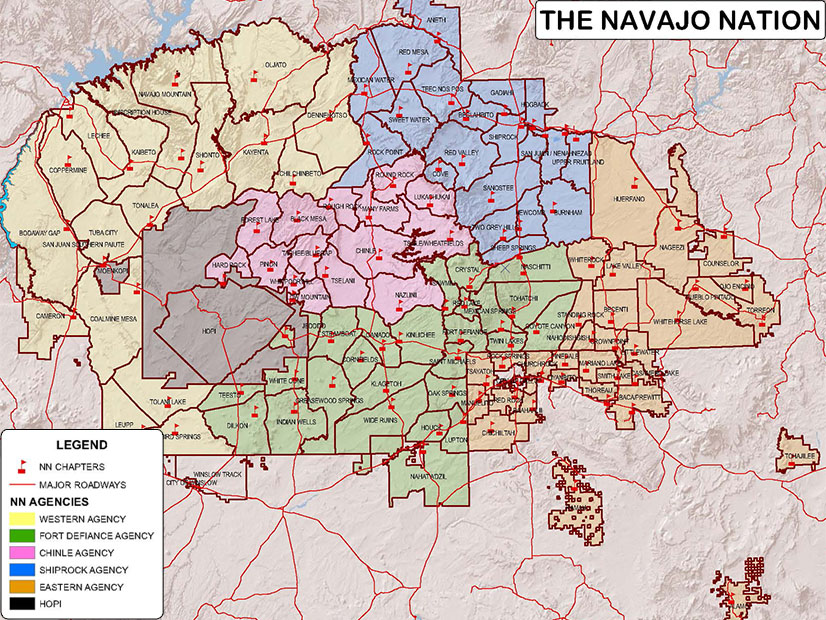CAISO notched another victory in the competition to bring organized markets to the West on Feb. 13 when the Los Angeles Department of Water and Power’s oversight board authorized the utility to prepare to join the ISO’s Extended Day-Ahead Market.
LADWP has yet to issue a formal announcement on a market decision and did not respond to a request for comment in time for publication of this article. But the resolution advanced by utility officials and approved by the Board of Water and Power Commissioners on Feb. 13 allows LADWP “to proceed with necessary activities, agreement preparations, and other related EDAM work that will be brought back to the board in the future for approval.”
“We think this is a good move forward,” Fred Pickel, LADWP’s ratepayer advocate, said ahead of the vote. “While the benefits exceed costs, it won’t have as big of an impact as participating in [CAISO’s] EIM, probably, but the information that all parties will get by participating in a formal market of this type will likely enhance everybody’s understanding of both short-run and long-run impacts and needs.”
LADWP would be the third entity to commit to the EDAM following commitments by six-state utility PacifiCorp and the Balancing Authority of Northern California, a joint powers authority that manages system operations for the Sacramento Municipal Utility District and five other publicly owned utilities. (See BANC Moving to Join CAISO’s EDAM.)
The largest municipal utility in the U.S., LADWP has been participating in CAISO’s real-time Western Energy Imbalance Market (WEIM) since April 2021. EDAM will expand the capability of the WEIM by including trading of day-ahead energy, which requires increased coordination among participants. As it works to attract members, the ISO faces strong competition from SPP’s Markets+ day-ahead offering, which has generated especially strong interest in the Northwest.
The commissioners offered no comments before approving the request, which LADWP officials, including General Manager Martin Adams, submitted in a Feb. 5 letter and accompanying resolution.
“EDAM builds on the success of WEIM, providing additional benefits to its participants while increasing regional coordination, supporting policy goals of the state of California and meeting demand more efficiently,” the letter said.
LADWP estimates EDAM will increase its net revenues by $20 million to $59 million a year, with most gains “expected to result from savings in adjusted production costs and enhanced EDAM transmission-related congestion transfers,” the officials said in the letter. LADWP realized nearly $149 million gross benefits from its participation in WEIM in 2023, according to CAISO.
The utility expects to incur about $14.7 million in setup costs to join EDAM, including system upgrades, training and ISO onboarding fees. It also estimates $21.1 million in annual costs for ongoing participation in the market, mostly stemming from administrative fees.
“Overall, EDAM presents a strong net annual financial opportunity while helping LADWP better integrate additional renewable generation, thereby minimizing curtailments and greenhouse gas emissions in its service territory and the Western region,” the letter said.
Extensive Reach
While LADWP’s service territory is limited to the city of Los Angeles, its reach extends far into other parts of the West. The utility owns and operates more than 3,600 miles of transmission lines spanning five states, including half the capacity on the 3,100-MW Pacific DC Intertie linking the L.A. metro area with the Bonneville Power Administration’s area in the Pacific Northwest.
LADWP’s other interstate transmission assets include 60% of the contract capacity rights on the Southern Transmission System line connecting Southern California with the Intermountain Power Project (IPP) in Utah, a 36% ownership stake in the Mead-Adelanto Transmission Project connected to Nevada, and co-ownership of the Navajo-McCullough Transmission Line between the now-retired Navajo Generating Station in Arizona and the McCullough substation in Nevada.
The utility also controls about 8,000 MW of generating capacity, including the 1,900-MW coal-fired IPP, 15% of the output from the 2,080-MW Hoover Dam in Nevada, and 5.7% of output from the 3,300-MW Palo Verde nuclear generating station in Arizona.
IPP is slated for conversion to an 840-MW natural gas-fired plant in 2025, including turbines capable of burning a fuel mixture containing 30% hydrogen. Last year, LADWP was authorized to convert its Scattergood Generating Station, the largest gas-fired plant in Los Angeles, to hydrogen.
